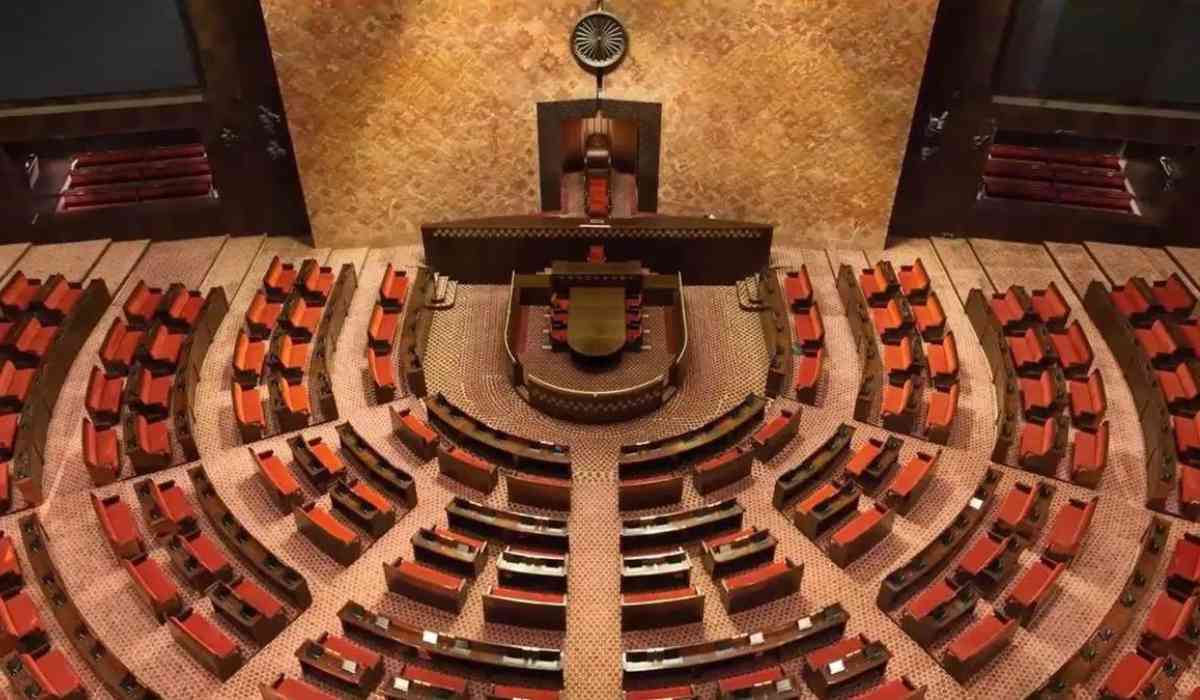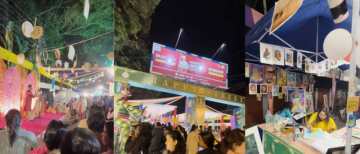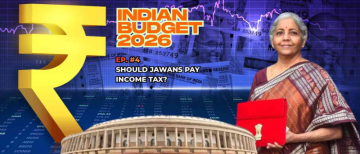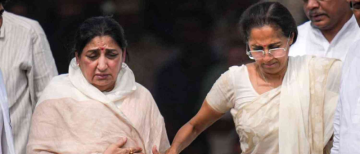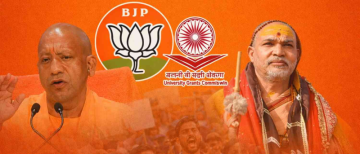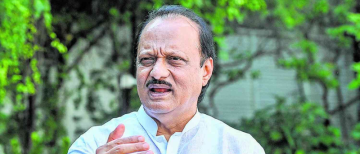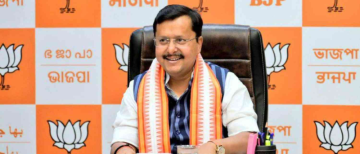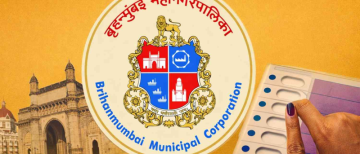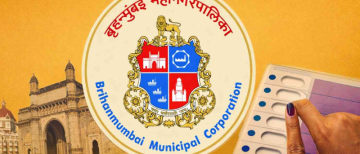The Rajya Sabha (RS) secretariat has notified vacancies on ten seats after these Upper House members were elected to the Lok Sabha in the recently concluded elections. Among them are three Union ministers. The announcement, made on Monday evening, initiates the process to fill these seats.
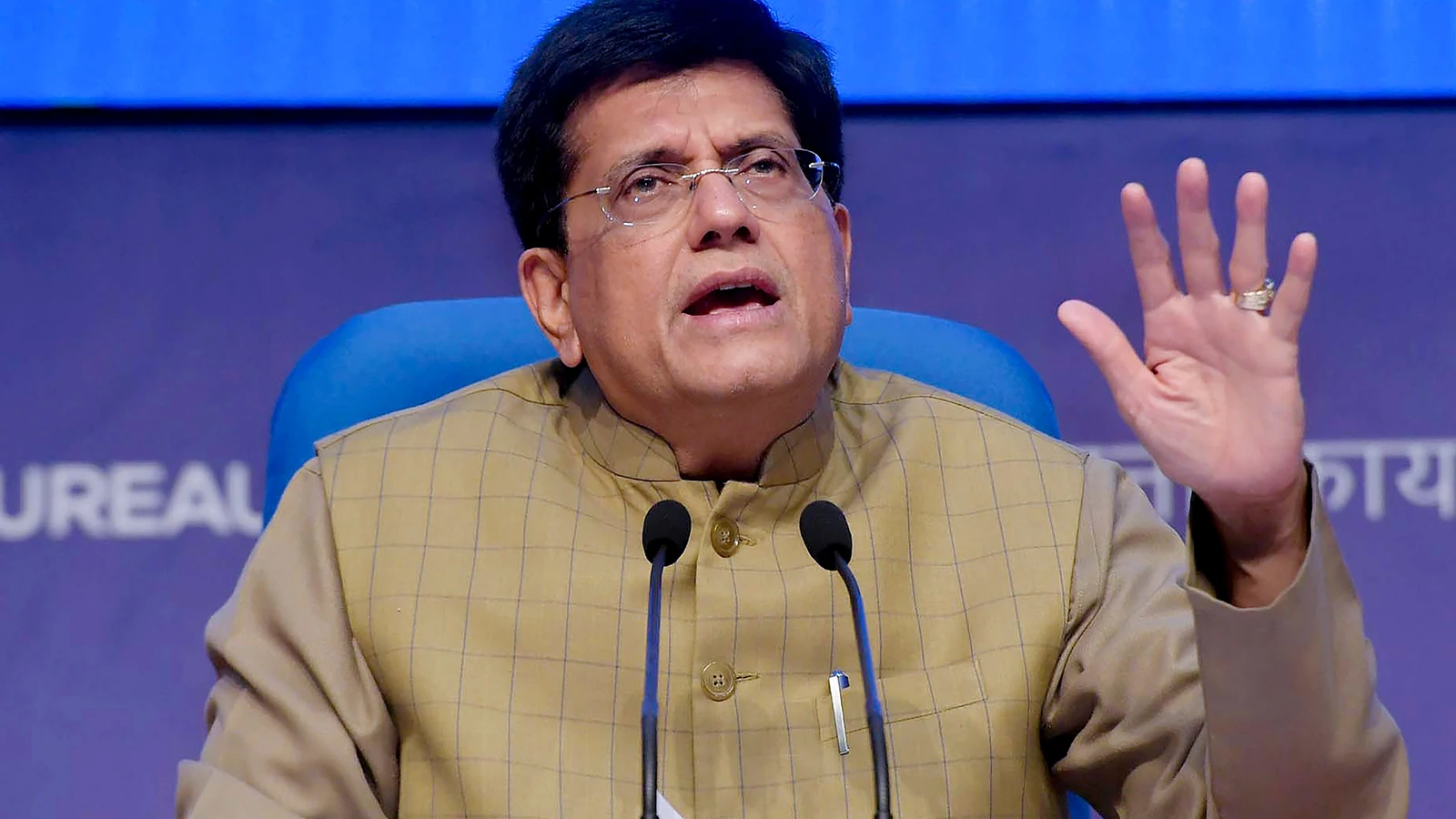
Party-wise Vacancies
-
Bharatiya Janata Party (BJP): 7 seats
-
Congress: 2 seats
-
Rashtriya Janata Dal (RJD): 1 seat
State-wise Vacancies
-
Bihar: 2 seats
-
Maharashtra: 2 seats
-
Assam: 2 seats
-
Rajasthan: 1 seat
-
Tripura: 1 seat
-
Haryana: 1 seat
-
Madhya Pradesh: 1 seat
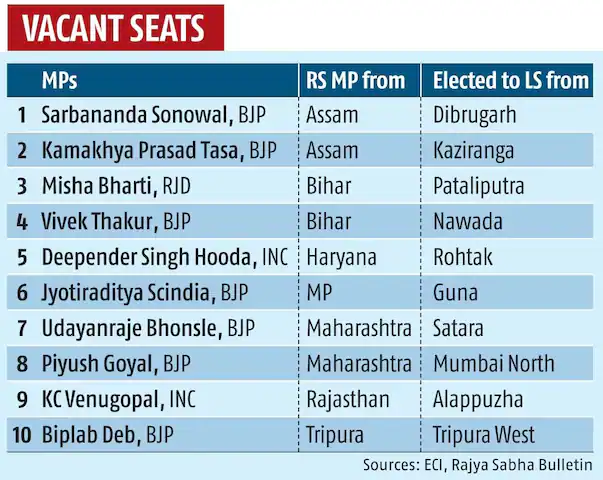
Potential Political Shifts
-
The BJP could secure at least two seats previously held by the Congress, one each in Haryana and Rajasthan.
-
Notable members moving to the Lok Sabha include Deepender Singh Hooda from Haryana and KC Venugopal from Rajasthan.
-
The BJP is poised to win the vacant seats in Haryana and Rajasthan.
-
Winning both seats in Assam may prove challenging for the BJP if the Congress-led INDIA bloc aligns with the All India United Democratic Front.
-
The BJP-led NDA in Maharashtra is likely to retain both seats, including one previously represented by Union minister Piyush Goyal.
-
The allocation of seats in Bihar is expected to be shared between the NDA and INDIA bloc.
Upcoming Retirements and Nominations
-
Three MPs from Kerala are set to retire on July 1.
-
Four nominated members are also set to retire in mid-July, including Mahesh Jethmalani, Ram Shakal, Rakesh Sinha, and Sonal Mansingh.
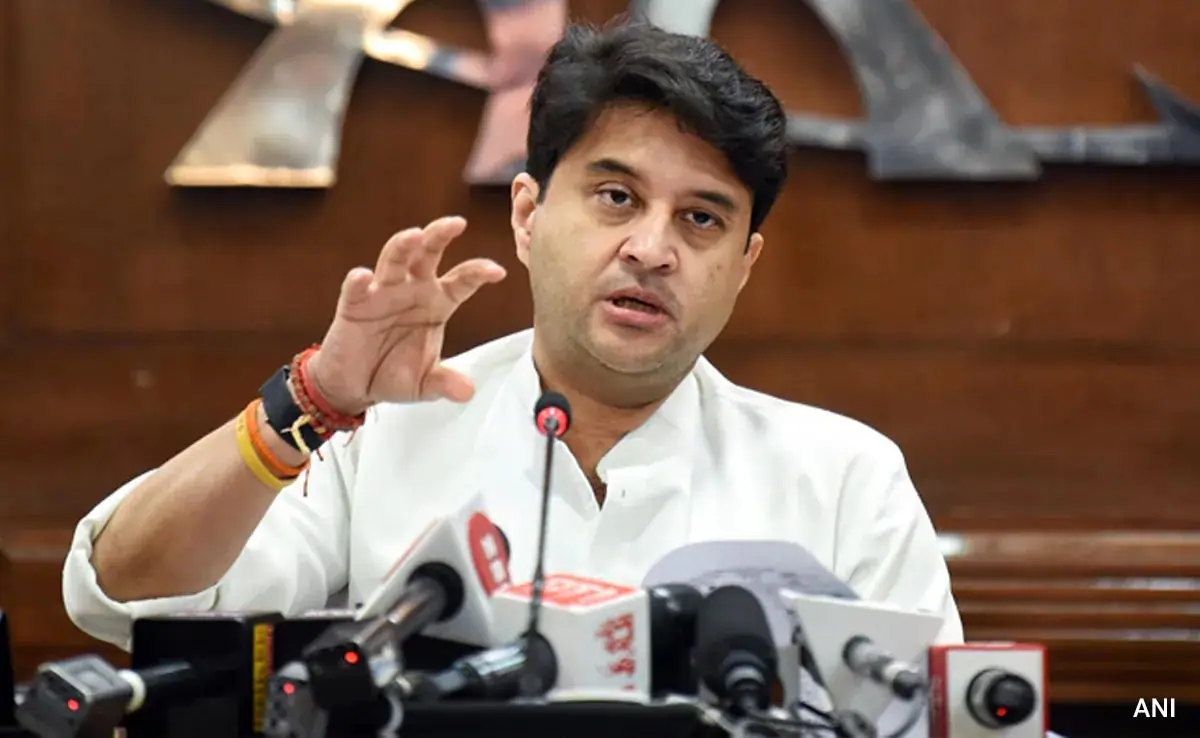
Constitutional Provisions for the Council of Ministers
The office of the Prime Minister and the Council of Ministers is governed by Article 75 of the Indian Constitution. Key provisions include:
-
Article 75(1): The President appoints the Council of Ministers on the Prime Minister's advice.
-
Article 75(1)(a): The total number of Ministers, including the Prime Minister, cannot exceed 15 percent of the Lok Sabha's total membership.
-
Article 75(1)(b): Added through the 91st Amendment Act, it addresses the disqualification of Ministers on grounds of defection.
-
Article 75(2): Ministers serve at the President's pleasure.
-
Article 75(3): The Ministers are collectively responsible to the Lok Sabha.
-
Article 75(4): This specifies the form of the oath taken by Ministers.
-
Article 75(5): A Minister must be a member of either the Lok Sabha or the Rajya Sabha within six months of their appointment.
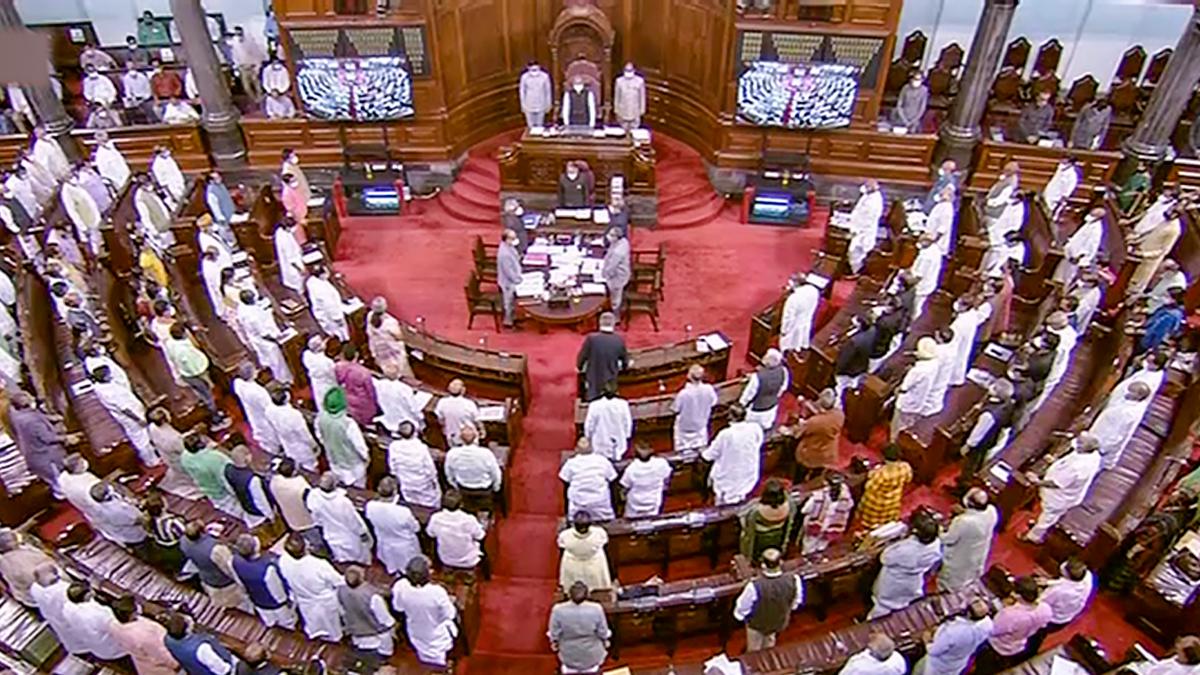
Diversity and Representation
The new cabinet reflects a deliberate effort to embrace diversity, focusing on caste balance. The composition includes:
-
Other Backward Classes (OBCs): Four ministers, including two from the most disadvantaged backgrounds.
-
Upper Castes: Three ministers.
-
Dalit Community: Two ministers from the Gadaria and Paswan communities.
This diverse representation is designed to sustain the NDA alliance and ensure stability within the coalition government. The inclusion of various communities aims to address regional and social dynamics, fostering a more inclusive governance model.
Inclusion Criteria for Council of Ministers
-
Lok Sabha Representation: States with four or more Members of Parliament (MPs) in the 543-member Lok Sabha are represented in the Council of Ministers.
-
Exclusion of Smaller States: States with fewer MPs, like Arunachal Pradesh, are not included in the council.
Oath-Taking and Key Events
-
Expected Schedule: Sources suggest that the special session of Parliament, where newly elected Lok Sabha members will take oath, might commence from June 24.
-
Agenda Items: The session is anticipated to witness the election of the Speaker by the Lok Sabha and the President's address to the joint sitting of both Houses.
-
Comparison with Past Sessions: While traditional sessions were brief, primarily focusing on oath-taking, the 2019 session extended from June 17 to August 7, encompassing various activities such as oath-taking, Speaker election, and Budget tabling.
With inputs from agencies
Image Source: Multiple agencies
© Copyright 2024. All Rights Reserved Powered by Vygr Media.

